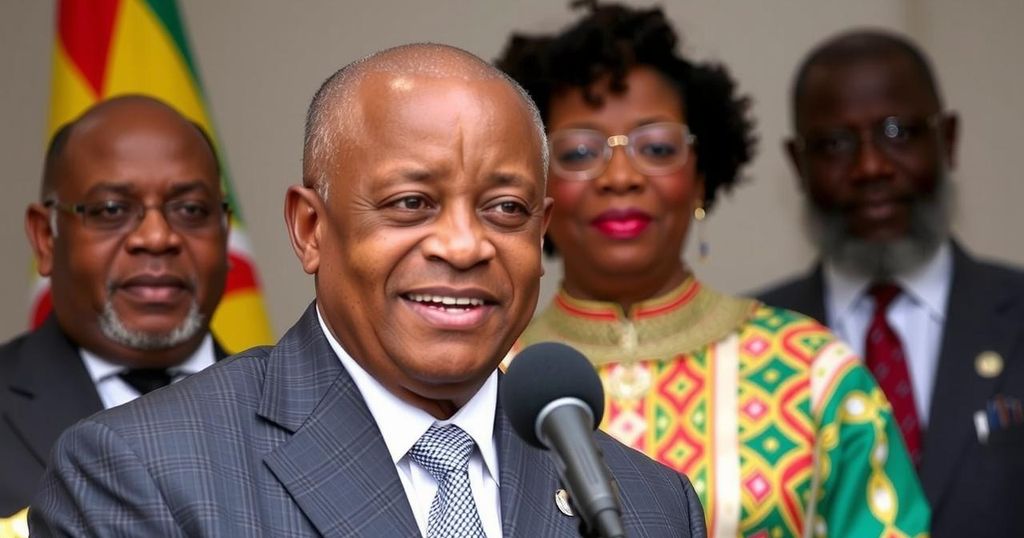Mozambique Prepares for New Parliament Amid Protests Over Disputed Election
Mozambique will swear in its new parliament on Monday, after disputed elections in October led to allegations of rigging. Opposition leader Venancio Mondlane claims to have won the presidential vote and is urging peaceful protests from Monday to Wednesday. Renamo and MDM will boycott the session, condemning it as illegitimate. The unrest has resulted in significant loss of life and economic disruption.
Mozambique is poised to inaugurate its new parliament on Monday, amidst ongoing tension stemming from the contentious October elections that have faced allegations of rigging. Opposition leader Venancio Mondlane is rallying his supporters to engage in peaceful demonstrations from Monday through Wednesday, when Daniel Chapo is scheduled to assume the presidency. Mondlane asserts that he achieved a majority in the presidential election, claiming he received 53 percent of the votes, contrary to the official results indicating he garnered only 24 percent, compared to Chapo’s 65 percent.
The political climate is further strained as two opposition parties, the Mozambican National Resistance (Renamo) and the Democratic Movement of Mozambique (MDM), announced their intention to boycott the parliamentary session meant to swear in new members. Renamo, having secured 28 seats in the 250-member assembly, expressed that the opening ceremony symbolizes a social outrage and disrespects the Mozambican populace, who were deprived of a truly democratic election process. They have articulated that the session represents the betrayal of voters’ rights and their call for electoral integrity.
Mondlane, who recently returned from exile, appealed for a national strike to disrupt activities over the three-day protest period, urging his supporters to demonstrate their opposition to what he perceives as an illegitimate election outcome. His return has been met with significant public support; however, it has also resulted in clashes with security forces, leading to several fatalities. Reports indicate that unrest following the elections has resulted in approximately 300 deaths and has severely disrupted Mozambique’s economy, halting cross-border trade and impacting various sectors such as mining and shipping.
The political landscape in Mozambique has been tumultuous following the October elections, where allegations of vote rigging and electoral misconduct have fueled significant unrest. The Frelimo party, in power for over five decades, faced severe opposition from Mondlane and his associates, leading to protests and a call for governmental accountability. The opposition’s refusal to acknowledge the election results reflects the deep-seated frustrations among many citizens who perceive the current political system as lacking legitimacy and transparency, culminating in calls for protests and a national strike by the opposition leader.
In conclusion, the situation in Mozambique remains precarious as the new parliament prepares for its inauguration amidst significant opposition protesting perceived electoral injustices. The stances taken by Mondlane and the boycotting parties highlight a broader call for democratic integrity and a reevaluation of the electoral process. As unrest continues to claim lives and disrupt the economy, the urgency for dialogue and resolution becomes apparent.
Original Source: www.voanews.com




Post Comment